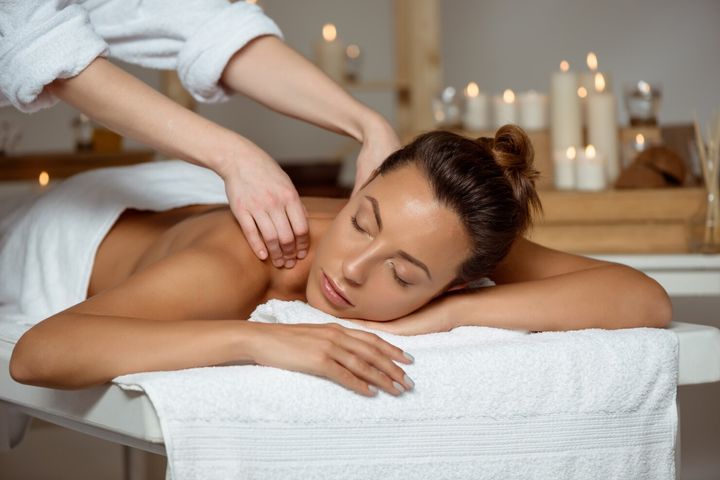
Exploring Modern Spas: A Beginner's Guide to Relaxation
The modern massage spa is an evolution of a traditional concept. No longer a simple place for a quick rubdown, today's spas have transformed into comprehensive wellness centers dedicated to holistic well-being. These establishments offer a wide range of services, from classic massage therapies to advanced treatments that blend ancient healing practices with modern technology. The existence of these evolved spaces is a direct response to the escalating pressures of contemporary life, including work-related stress, digital overload, and the growing awareness of the importance of self-care. This guide is designed to help you understand the purpose and offerings of these modern wellness hubs, allowing you to make an informed choice that supports your health journey.
The Importance of Wellness in Today's World

The topic of personal wellness has become central to our lives, and massage spas are at the heart of this movement. The relevance of these services has grown exponentially due to several societal trends and the problems they are equipped to solve.
The modern lifestyle, characterized by prolonged sitting, constant screen time, and high-stress work environments, has led to a rise in physical and mental health issues. Massage spas play a crucial role in addressing these problems. The benefits extend far beyond a moment of relaxation. They affect a wide range of people, including:
Professionals and Students: Those who spend long hours hunched over desks or books often suffer from chronic pain in their neck, shoulders, and back. Regular massage can alleviate muscle tension and improve posture.
Athletes and Fitness Enthusiasts: For individuals engaged in physical activity, massages aid in muscle recovery, reduce soreness, and prevent injuries, helping them maintain their performance.
Individuals Facing Stress and Anxiety: The act of receiving a massage reduces stress hormones and boosts the production of endorphins, leading to a state of calm and improved mental clarity.
A spa visit provides a direct solution to problems such as poor sleep quality, chronic headaches, and stress-related fatigue. By offering a range of therapies, from deep tissue massage to aromatherapy, these centers provide tailored solutions that promote physical healing and emotional balance.
Recent Updates and Trends in 2025
The wellness industry is dynamic, and massage spas are at the forefront of innovation. In the past year (late 2024 to mid-2025), several key trends have emerged, transforming the traditional spa experience.
Integration of Technology
Technology is no longer limited to booking and scheduling. Modern spas are now integrating cutting-edge devices into treatments themselves. This includes:
Personalized Experiences: Some spas are using data from client intake forms and biometric sensors to create highly personalized massage protocols.
Smart Equipment: The use of robotic massage chairs and smart massage tables that can detect muscle tension and adjust pressure in real time is on the rise.
Holistic and Integrative Therapies
Spas are expanding their menus to offer a more holistic approach to well-being. The focus is on treatments that address both the body and the mind.
Ayurveda: India's ancient practice of Ayurveda is seeing a resurgence in popularity. Spas are incorporating traditional therapies like Panchakarma, Abhyanga (medicated oil massage), and Shirodhara (forehead oil drip) to promote deep healing and detoxification.
Alternative Wellness Practices: Therapies such as sound healing, lymphatic drainage massage, and meditation are becoming standard offerings, providing a comprehensive approach to health.
Focus on Sustainability
Consumers are increasingly conscious of their environmental impact, and the spa industry is responding. In 2025, many spas are adopting eco-friendly practices, including:
Using organic, locally sourced oils and products.
Reducing water and energy consumption.
Offering treatments that are both beneficial for the client and sustainable for the planet.
This shift reflects a broader trend of aligning personal wellness with global responsibility.
Laws and Policies
The regulation of massage spas and wellness centers is critical to ensuring public safety and maintaining professional standards. In India, the industry is primarily governed by state and local municipal regulations, as there is no single central authority that oversees the entire sector.
Municipal Licensing and Health Certificates
Massage and spa establishments are typically required to register under the Shops and Establishments Act of their respective state. Additionally, they must obtain a Health Trade License from the local municipal corporation or health department. This license ensures that the premises meet specific hygiene, sanitation, and safety standards. Regular inspections by health officials are often conducted to ensure continued compliance.
Professional Qualifications and Licensing
While a national standard for massage therapists is still developing, certain states have introduced or are considering policies that mandate professional qualifications. Many reputable spas now require their therapists to hold a formal diploma or certificate from a recognized institution. This practice helps to ensure that practitioners have a solid foundation in anatomy, physiology, and massage techniques. Furthermore, some states may require police verification of all staff members to prevent illegal activities.
Operating Hours and Cross-Gender Massage Rules
To address public safety concerns, several local jurisdictions have imposed specific regulations on spa operations. For example, some cities have mandated specific operating hours (e.g., from 9 am to 9 pm) and have prohibited the use of locks on treatment room doors. In some areas, there are strict rules against cross-gender massage, requiring male therapists to treat male clients and female therapists to treat female clients. These regulations are designed to clearly distinguish legitimate therapeutic services from illicit activities and ensure the safety and dignity of clients.
Tools and Resources
For those looking to explore the world of massage spas and wellness centers, a variety of digital and professional resources can simplify the process and help you make an informed decision.
Online Booking and Aggregator Platforms
A number of websites and mobile apps serve as platforms for discovering and booking spa and wellness services. These tools allow you to:
Filter spas by location, treatment type, and budget.
Read genuine reviews and ratings from other users.
Compare prices and check for special offers.
Book and pay for appointments online, streamlining the entire process.
Professional Certification Bodies
To ensure you are receiving a service from a qualified professional, you can look for therapists who are certified by reputable organizations. While a national registry in India is still in progress, many therapists are certified through private institutions or are members of professional associations. Asking a spa about the qualifications of its staff and checking for a therapist's certification or diploma is a good practice.
Health and Wellness Apps
Many health and wellness apps can complement your spa visits. While these apps do not replace professional treatments, they can help you maintain the benefits in your daily life.
Meditation and Mindfulness Apps: Platforms that guide you through breathing exercises and meditation can help you prolong the mental relaxation you achieve at the spa.
Sleep Tracking Apps: These tools can help you monitor your sleep patterns, allowing you to see how a massage treatment can improve your sleep quality.
Online Review and Directory Websites
Platforms where customers can leave reviews are an invaluable resource for assessing the reputation of a spa. A high number of positive reviews, especially those that mention the professionalism of the staff, the cleanliness of the facility, and the quality of the treatments, can indicate a reputable establishment. It is always wise to look for consistent feedback rather than relying on a single review.
Frequently Asked Questions
How often should I get a massage?
The frequency of massage depends on your individual needs and lifestyle. For general wellness and stress reduction, a monthly massage is often recommended. If you have chronic pain, are an athlete in training, or are experiencing a period of high stress, more frequent sessions (e.g., bi-weekly) may be beneficial.
What is the difference between a massage therapist and a masseuse?
In professional circles, a "massage therapist" is the preferred and more accurate term. It generally refers to a trained professional who has received formal education, certification, and often a license to perform therapeutic massages. The term "masseuse" (or "masseur" for men) is often seen as an outdated or less professional term and can sometimes be associated with uncertified or illicit services.
Do spa treatments help with chronic pain?
Yes, many spa treatments, particularly specific types of massage like deep tissue, trigger point therapy, or therapeutic sports massage, can be highly effective in managing chronic pain. These techniques work by releasing muscle tension, improving blood circulation, and reducing inflammation. However, it is essential to consult with a doctor or physical therapist to determine the underlying cause of your pain before seeking treatment.
How do I choose a reputable spa?
To find a reputable spa, you should look for several key indicators. First, check if the spa has a valid Health Trade License and a professional website. Second, read customer reviews on multiple platforms to gauge their reputation. Third, during your first visit, pay attention to the cleanliness of the facility, the professionalism of the staff, and their willingness to answer all your questions about their services and the qualifications of their therapists.
Conclusion
Modern massage spas have evolved into vital wellness centers, providing essential services that address the physical and mental strains of contemporary life. By embracing technology and holistic therapies while adhering to professional standards, the industry offers a path to effective relaxation and healing. For anyone seeking to prioritize their well-being, a massage spa provides a tailored and professional solution for a healthier lifestyle.






